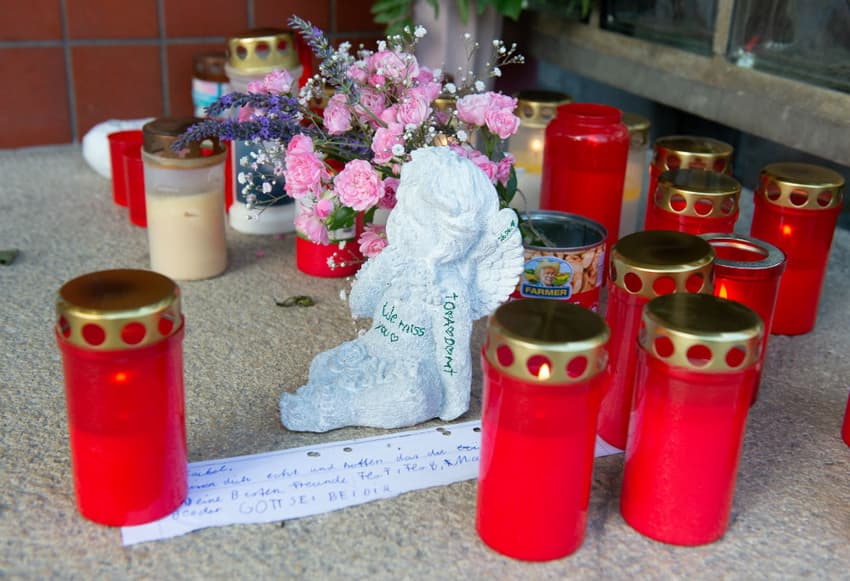Arrest warrant issued for man suspected of killing wife and three kids in Bavaria

After the bodies of a woman and her three kids were found in their apartment, Bavarian prosecutors announced on Wednesday that an arrest warrant on four counts of murder had been issued for the family’s father.
The 31-year-old father is suspected of stabbing his 29-year-old wife, three-year-old daughter and seven- and nine-year-old sons on Tuesday in the town of Gunzenhausen.
An autopsy of the bodies revealed that they were fatally wounded with a knife.
After the crime, the man jumped or fell from the balcony of the third-floor apartment and was seriously injured. He was taken to hospital and underwent emergency surgery; he could not be initially interrogated.
The 29-year-old woman had wanted to separate from her husband because he abused the children, according to the police. On June 21st, the man’s key to the family’s flat was confiscated and he was banned from going near them after a witness told authorities that he had beaten up his sons.
On Monday, the day before the crime, the woman reported the man to the police. One day later, the suspect is believed to have returned to the home of his wife and children, telling them he urgently needed to pick up clothes.
The brother of the 29-year-old woman discovered the man as well as the bodies of the four family members on Tuesday.
The brother told police that when he entered the apartment that morning, he saw his brother-in-law standing there with bloody hands holding a large kitchen knife. The suspect then allegedly ran toward the balcony.
The family is said to be of Russian descent.
Comments
See Also
The 31-year-old father is suspected of stabbing his 29-year-old wife, three-year-old daughter and seven- and nine-year-old sons on Tuesday in the town of Gunzenhausen.
An autopsy of the bodies revealed that they were fatally wounded with a knife.
After the crime, the man jumped or fell from the balcony of the third-floor apartment and was seriously injured. He was taken to hospital and underwent emergency surgery; he could not be initially interrogated.
The 29-year-old woman had wanted to separate from her husband because he abused the children, according to the police. On June 21st, the man’s key to the family’s flat was confiscated and he was banned from going near them after a witness told authorities that he had beaten up his sons.
On Monday, the day before the crime, the woman reported the man to the police. One day later, the suspect is believed to have returned to the home of his wife and children, telling them he urgently needed to pick up clothes.
The brother of the 29-year-old woman discovered the man as well as the bodies of the four family members on Tuesday.
The brother told police that when he entered the apartment that morning, he saw his brother-in-law standing there with bloody hands holding a large kitchen knife. The suspect then allegedly ran toward the balcony.
The family is said to be of Russian descent.
Join the conversation in our comments section below. Share your own views and experience and if you have a question or suggestion for our journalists then email us at [email protected].
Please keep comments civil, constructive and on topic – and make sure to read our terms of use before getting involved.
Please log in here to leave a comment.